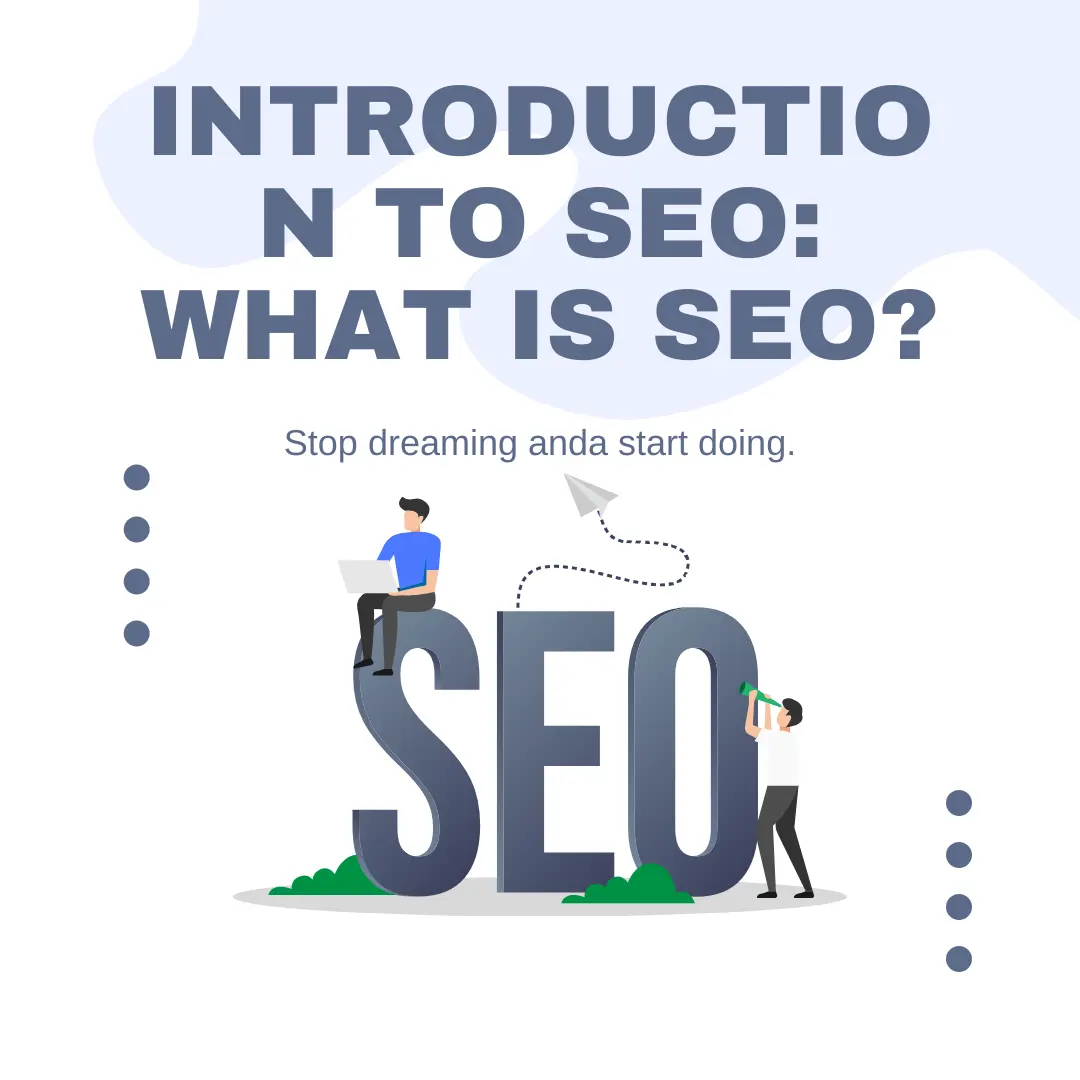Introduction to SEO: What is SEO?
Learn what SEO is and how it can enhance your website’s visibility and traffic. Discover the importance of SEO in the digital world.
In the vast digital landscape, where countless websites compete for attention, how do you ensure that your website stands out? This is where SEO, or Search Engine Optimization, comes into play. SEO is the magic wand that helps your website appear in search results, attracting visitors and potential customers. But what exactly is SEO, and why is it so crucial? Let’s dive in and explore the world of SEO together.
What is SEO?
SEO, or Search Engine Optimization, is like a map that guides search engines to your website. Think of it as the process of enhancing your website to make it more visible when people search for products, services, or information related to your business on search engines like Google. SEO involves various strategies, techniques, and practices to improve your website’s ranking in search engine results pages (SERPs).
Why is SEO Important?
Imagine having a beautiful store hidden in a remote alley. Without signs or directions, potential customers might never find it. SEO acts as those signs and directions, guiding visitors to your website. Higher visibility means more traffic, which can lead to increased sales, brand recognition, and credibility.
How Search Engines Work
Before diving into SEO techniques, it’s essential to understand how search engines work. Search engines like Google use algorithms to crawl, index, and rank websites. They scan web pages for content, keywords, and links, then store this information in an index. When someone searches for something, the search engine retrieves relevant results from its index, ranking them based on various factors like relevance, authority, and user experience.
Keywords: The Heart of SEO
Keywords are the bridge between what people are searching for and the content you provide. They are words or phrases that users type into search engines. Identifying the right keywords for your website is crucial. Tools like Google Keyword Planner can help you find relevant keywords with high search volumes and low competition.
On-Page SEO Explained
On-page SEO refers to optimizing individual web pages to improve their search engine rankings. It includes strategies like using relevant keywords in your content, optimizing title tags and meta descriptions, and ensuring your website is mobile-friendly. On-page SEO focuses on elements within your control.
Off-Page SEO: Building Authority
Off-page SEO involves actions taken outside your website to impact your rankings within SERPs. It mainly focuses on building your website’s authority through backlinks, which are links from other websites to yours. High-quality backlinks act as votes of confidence, indicating to search engines that your content is valuable and trustworthy.
Technical SEO: The Backbone
Technical SEO is the behind-the-scenes work that ensures search engines can easily crawl and index your website. It involves optimizing your site’s structure, improving page load speed, and ensuring it is mobile-responsive. A well-optimized technical foundation is crucial for SEO success.
Content is King
Quality content is at the core of SEO. Creating engaging, informative, and valuable content not only attracts visitors but also encourages them to stay longer on your site. Regularly updating your content and incorporating relevant keywords naturally can improve your rankings over time.
User Experience and SEO
User experience (UX) plays a significant role in SEO. Search engines prioritize websites that offer a positive experience to users. Factors like easy navigation, fast loading times, and mobile-friendliness contribute to a better UX, ultimately boosting your SEO efforts.
SEO Tools and Resources
Numerous tools and resources can aid your SEO journey. From keyword research tools like SEMrush and Ahrefs to analytics platforms like Google Analytics, these resources provide valuable insights into your website’s performance and help you make data-driven decisions.
Common SEO Mistakes to Avoid
Even the most experienced marketers can make SEO mistakes. Avoid common pitfalls like keyword stuffing, neglecting mobile optimization, and ignoring analytics. Staying updated with SEO trends and best practices can prevent these errors and ensure long-term success.
Measuring SEO Success
To gauge the effectiveness of your SEO efforts, you need to track key metrics. Tools like Google Analytics can help you monitor organic traffic, bounce rate, and conversion rates. Regularly analyzing these metrics allows you to make informed adjustments to your strategy.
Future of SEO
The world of SEO is constantly evolving. As technology advances and user behaviors change, search engines adapt their algorithms. Keeping an eye on emerging trends like voice search, artificial intelligence, and video content will help you stay ahead in the SEO game.
Conclusion
SEO is not just a buzzword; it’s a vital strategy for online success. By understanding the fundamentals of SEO and implementing effective techniques, you can enhance your website’s visibility and reach your target audience. Remember, SEO is an ongoing process that requires continuous effort and adaptation.
FAQs
1. What is the difference between SEO and SEM?
SEO (Search Engine Optimization) focuses on organic search results, while SEM (Search Engine Marketing) includes paid advertising to increase visibility in search results.
2. How long does it take to see results from SEO?
SEO is a long-term strategy. It can take several months to see significant results, depending on factors like competition and the quality of your SEO efforts.
3. Can I do SEO myself, or do I need a professional?
You can do basic SEO yourself, but hiring a professional can ensure more effective and comprehensive strategies, especially for competitive industries.
4. What are some free SEO tools I can use?
Some free SEO tools include Google Keyword Planner, Google Analytics, and Google Search Console. These tools offer valuable insights into your website’s performance.
5. Is SEO only for big businesses?
No, SEO is essential for businesses of all sizes. It helps small businesses compete with larger ones by increasing their online visibility and attracting potential customers.



